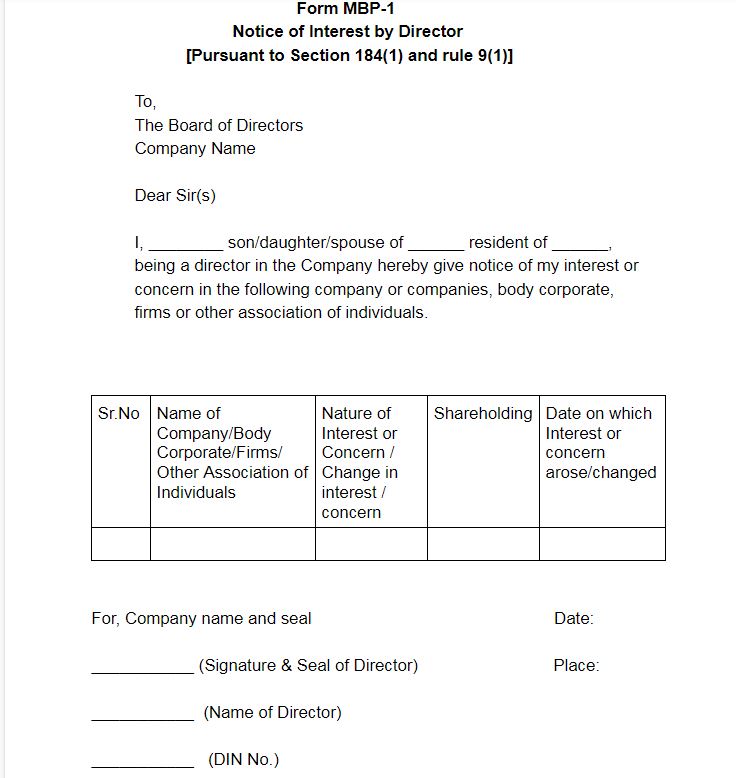View News
Analysis-of-legality-in-Common-Practices-in-Form-MBP-1-Disclosure-of-Interest-by-Directors

Analysis of legality in Common Practices in Form MBP-1: Disclosure of Interest by Directors
What is Form MBP-1?
Form MBP-1 is a statutory disclosure under the Companies Act, 2013, wherein every director is required to declare their concern or interest in any company, body corporate (including shareholding interests), firm, or other association of individuals. This disclosure must be submitted in writing using Form MBP-1.
What Does “Concern or Interest” Mean?
The phrase “concerned or interested” is not defined in Form MBP-1 itself but can be interpreted through Section 184(2) of the Companies Act, 2013. According to this section, a director is considered to be concerned or interested in any contract or arrangement if they are:
(a) Directly or indirectly concerned or interested in a contract or arrangement (existing or proposed) with a body corporate where the director:
1. Holds more than 2% of the shareholding in association with any other director, or
2. Is a promoter,
3. Acts as a manager, or
4. Serves as a Chief Executive Officer (CEO)
(b) Involved with a firm or other entity where the director is:
1. A partner,
2. An owner, or
3. A member
Common Practice vs. Legal Requirement
In practice, many companies include in Form MBP-1 the names of all companies where a director holds a directorship. While this may provide additional transparency, it is important to note that such disclosure is supplementary. The critical requirement is to ensure full and accurate disclosure as per Section 184(2), which focuses on the director’s involvement in contracts or arrangements where a conflict of interest could arise.
Conclusion:
While including all directorships may serve as an extra layer of disclosure, it is essential that the core statutory requirements under Section 184(2) are not overlooked. Directors must ensure that their MBP-1 disclosures accurately reflect their interests as defined by law.
Disclaimer:
The contents of this document are based on current legal provisions and available information. While every effort has been made to ensure accuracy and reliability, no responsibility is accepted for any errors or omissions. Readers are advised to consult the relevant laws and regulations. This document does not constitute legal advice, and no liability is accepted for any consequences arising from its use.
From the desk of CS Sharath

